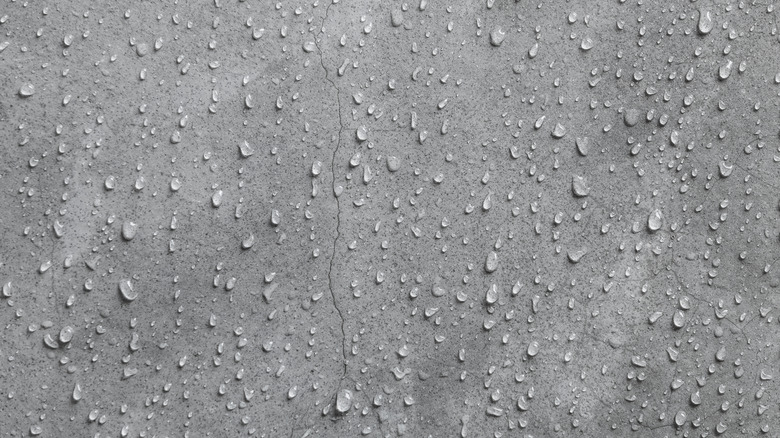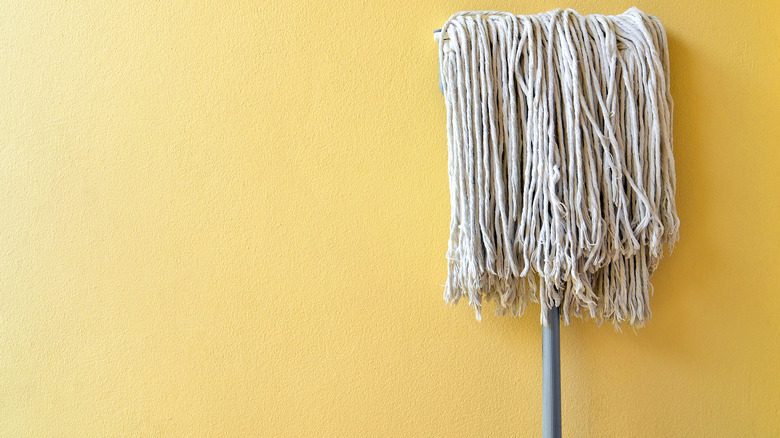What It Really Means When Your Walls Sweat
In life, sweat happens. Humans sweat. Dogs sweat. Heck, even walls sweat. But one of these things is not like the other: Can you guess which?
Sweating walls inside a home aren't harmless or natural. This phenomenon occurs when water beads on the surface of a wall or trickles out of the wall itself, often leading to damp patches and, if left alone, possibly extensive water damage. If you have sweating walls, you might notice additional symptoms in your home like humid air, standing water on the floor, mold and mildew, rot, and more, according to the University of Minnesota Extension. And problems like this don't fix themselves, so get ready to make a call if you're not able to remedy the problem on your own.
There are various causes that could be causing your walls to sweat, so it can be tricky to diagnose the source of the excess moisture. Here are some of the most common culprits for those dreaded sweaty walls.
There are several causes of — and solutions to — sweating walls
To determine the cause of sweating walls in your home, try the aluminum foil test on a damp spot, suggests Reader's Digest. After drying the spot with a fan heater, tightly tape a piece of foil over it. Check the surface of the foil after 24 hours. If it's wet, the problem is condensation. When that's going on, it's because there's too much moisture build-up in the air in a poorly ventilated space.
Avoid using portable gas heaters, as they produce moisture, and make sure rooms that often experience moisture, like bathrooms, kitchens, and laundry rooms, have extractor fans or vents to move all that damp air from the inside of your home to the outside.
Sweating walls also occur commonly in basements because these subterranean rooms are surrounded by damp air and soil, according to SFGate. Water easily leeches through the poured concrete or block walls into the space, causing moisture inside. However, sealing concrete walls with a waterproof sealant can help the issue. That said, the sealant must be reapplied if it cracks.
Finally, the wall-sweating problem could be a simple leak, say, from the roof or your plumbing system, according to Reader's Digest. The only answer then is to consult a professional — and cross your fingers that you've caught the leak before it could cause too much damage.

